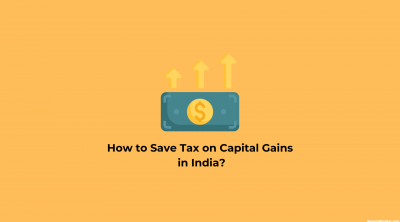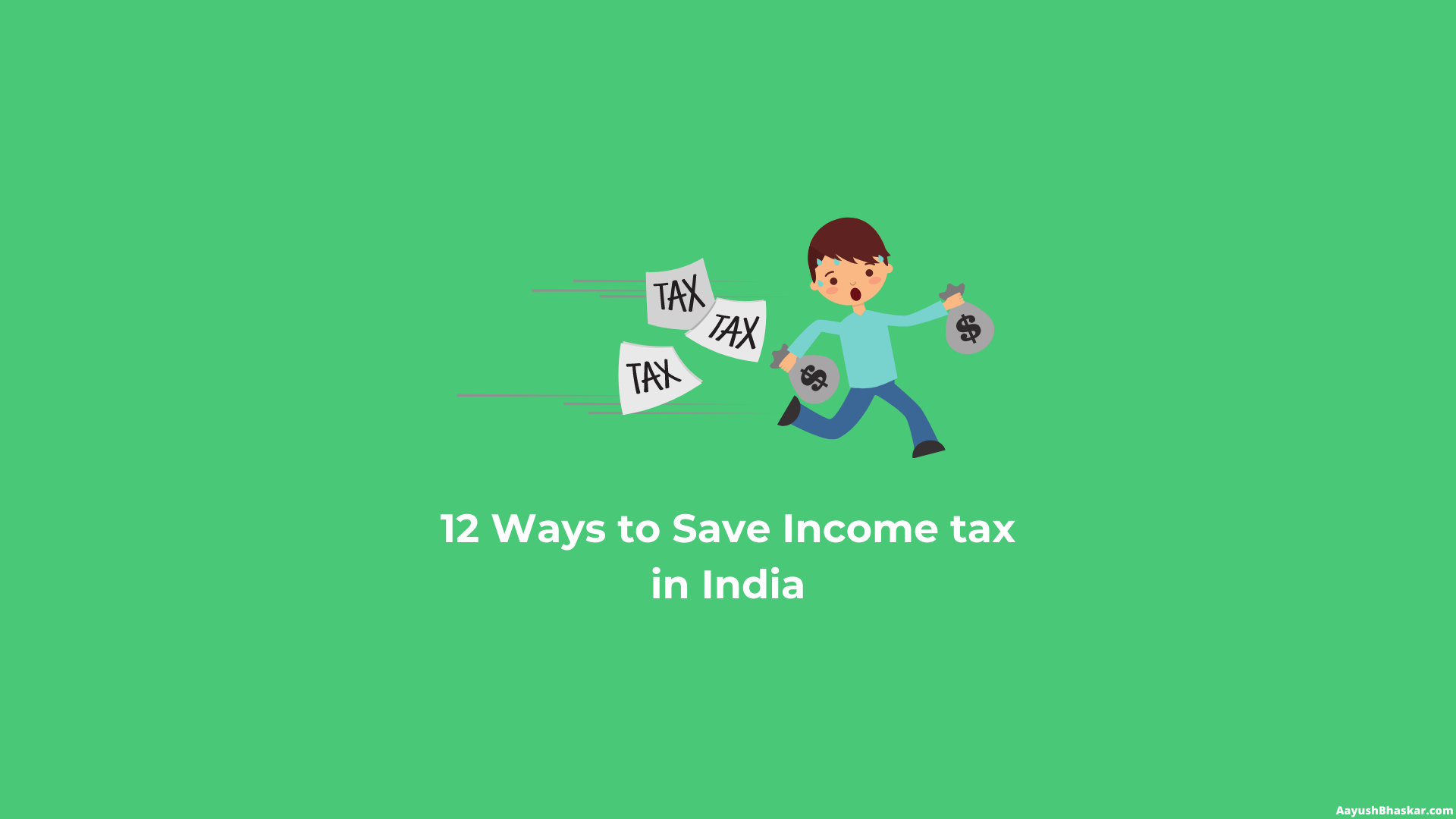With the onset of social media and the rising demand for creative content, content creators and bloggers are reaching new heights. Gone are the days when blogging was just a hobby; it is a full-fledged business now!
Being a content creator or a blogger is no more a medium to just pass the time, but it is a whole job. It requires the dedication to put in multiple hours daily and never-ending efforts.
The blogging profession is very lucrative not just because it provides an individual with a platform to express what they are best at but also because it has high monetary values.
In India, a blogger earns anything between $100-$10,000 per month.
Even many high-profile jobs do not offer such a package to their employees. This proves how the demand for blogging and content creation is on a spectacular rise.
Every income earned by a blogger is taxable under the Income Tax Act.

But first, let us understand who really is a ”Blogger.”
A blogger is any person who creates regular content on their website or any other platform like Facebook, Instagram, etc., majorly in the creative field.
However, the dictionary term of a blog is an independent source of information that allows the expression of the writer’s opinions and views.

How does a blogger earn?
There are various sources through which a blogger can earn revenue. These are –
- Advertisements: It is one of the most common sources of revenue for any type of blogger. When a blog grows, it becomes a platform for promoting the products or services of different companies. These companies reach out to the blogger to showcase their products/services on his/her website. Every time a visitor clicks on the ad on the blog, the blogger earns revenue.
- Personal brand: When you build a personal brand, your name is what gets you the money. Whether it is attending an event, judging a show, becoming a speaker, or creating an online course – it sells due to your personal brand, generating revenue.
- Paid reviews: Many companies approach famous bloggers to review their services/products. They pay the blogger for the review he/she posts on their blog or any social media handle.
- Affiliate sales: Upon mutual agreement, as and when a blogger adds links to the products and services of another company, it is called affiliate marketing. Every click and purchase the reader makes through the blog gets the blogger to earn revenue.
- Freelancing: Bloggers also work as freelancers, in which they collaborate with different clients and get paid for the work.

Income Tax Implications on Bloggers
Blogging income is currently not classified into the five heads of income as per the Income Tax Act.
However, given the nature of the activity/profession, the income is best classified under the Income from Business/Profession and is treated accordingly.
Under this section, the taxpayer must pay taxes on the income in the profit and loss account after considering total expenditure and total revenue, remitting taxes on the net income.
Expenses Allowed
As the income from blogging is like a business income and taxed accordingly, the taxpayer can show certain expenses. The blogger deducts these expenses from the total revenue. These expenses are –
- Domain hosting expenses.
- Rent expense.
- Utility expenses like electricity, telephone, etc.
- Employee salaries.
- Payments to freelance consultants.
- Convenience charges.
- Any other charges incurred to earn revenue.
The blogger must have bills and/or receipts as proof of expenses incurred.

Depreciation
Even in the profession of blogging, bloggers need to purchase assets necessary for the job.
These assets are laptops, furniture, office equipment, etc. The cost of these assets cannot be fully claimed in the same year that they are purchased.
The blogger has to distribute this over the entire life of the asset. This is the depreciation and is an allowable expense. The blogger can reduce it from his/her revenue to arrive at the net income, which is taxable.
Investments
It is also possible to save tax via investments. The blogger can invest in mutual funds, PPF, LIC, etc. These investments are deductible under section 80C of the Income Tax Act.
The blogger needs to pay taxes on the balance amount after deducting all expenses, investments, and depreciation.
He/she pays the taxes according to the Income Tax Act’sAct’s slab rates, like every other employee.

Other essential points to remember
- The income tax is paid for the income earned in the same year. Hence, the blogger should pay taxes in installments if it goes beyond the threshold limits. This is the advance tax. As a taxpayer, you need to pay this tax before the end of a financial year. Also called the ”pay as you earn” scheme, it is payable if your tax liability is more than Rs. 10,000 in a financial year.
- The delay in the payment of income taxes results in penalties and interest.
- A Permanent Account Number (PAN) is a must for everybody to file for income tax returns.
Penalties
- Failure to pay the income tax on time results in the blogger getting charged a penalty under section 234F.
- If you fail to pay the taxes within the standard deadline of 31st July, you need to pay a penalty of up to Rs. 10,000.
- However, if you pay the taxes before 31st December but after 31st July, you pay a fine of Rs. 5,000.
- Anybody earning less than Rs. 5 lakhs as their income pays a fine of a maximum of Rs. 1,000 on account of missing both the deadlines.
All the income tax provisions applicable to bloggers are the same as applicable to business owners. Blogging is considered a business itself. The blogger is the business owner and the income, the business income. It works the same way, with hardly any difference.
However, if the blogger receives additional income other than that of blogging, the Income Tax Act will be applicable accordingly.
The blogger is also subject to other taxes. These taxes are the Goods and Services Tax, Tax Deduction at Source, and Equalization Levy – all applicable according to their own set of rules and policies.

How does the blogger PAY his/her Income Tax?
Below are the steps on how you can pay your income tax with Challan 280 –
- Visit the Income Tax Department website and go to the tax information network. Click on ‘Proceed’ under the option of Challan 280.
- Fill out your personal information in the form. For an individual, selecting (0021) Income Tax is the right option to move further.
- Select the type of payment.
- Choose the mode of payment – either net banking or through a Debit card.
- Select the relevant assessment year. For the year 2020-2021, the RAY is 2021-2022.
- Enter your complete address.
- Enter the Captcha that you see on the screen and click on ‘Proceed’.
- Double-check your information, free from any errors.
- Submit the request to your bank. After this, you will be redirected to the bank’s page to make the payment.
- After completing the payment, you will receive a tax receipt with the payment details. Save this copy as you will be needing the BSR code and challan number to file an ITR.
The blogger needs to get registered under GST if their aggregate turnover exceeds 20 Lakhs. They need to pay a total of 18% GST.
How does the Blogger file a GST?
The first and foremost step for a blogger to register under GST is to provide their PAN card details and phone number. After the provision of these items, the blogger will receive a Taxpayer Registration Number. Once that is generated, the blogger is said to submit the following information –
- Business Information: This involves the business turnover, operations functionality, etc. The blogger also needs to state the services covered and if they are within the state, out of the state, or international. He/she also needs to state the business premises with the accurate residential address.
- Personal Details: The blogger needs to provide their full name, date of birth, a recent photograph, and PAN card. Other information also includes the blogger’s number and e-mail ID.
Once the blogger states all the necessary details above, he/she also needs to provide his/her bank details as the proprietor.
The entire process takes place on the GST portal of India by filling an online form.
Penalties for not filing for a GST is Rs. 10,000, and not filing for the return is Rs. 100 per day.
How does the Blogger apply for an Income Tax Return?
Since blogging is a business, a blogger needs to file his/her Income Tax Returns under the ITR-3. The form is available online. It is a form that requires all your personal information, along with your residential address and Adhar card number.
This is how you can fill the form to apply for an income tax return –
- Find the form on the web portal of the Income-tax department and file it electronically.
- Verify the form by digitally signing it. You can also authenticate the form by using an electronic verification code or by sending a signed paper from ITR-5 by post to the Central Pay Commission. The postal address for the same is ―Post Bag No. 1, Electronic City Office, Bengaluru— 560500,
Karnataka. - The form reaches the postal address 120 days after the filing of the e-return.
- When the return form is successful in furnishing, the assessee should print 2 copies of the ITR-5 form. The assessee (i.e., the blogger) signs one copy and sends it to the postal address above, and the other one is just for records.
- To know more about the obligations to file for the return and the form details, you will find the information here.
Conclusion:
This means that blogging is considered as much of a profession as any corporate job or business enterprise.
All rules apply to bloggers to pay their Income Tax just the way business owners do.
From expenses to deductions, bloggers are not any different than full-time working professionals. According to the tax slab they fall in, they need to pay the taxes like every other Indian citizen.



Leave a Reply